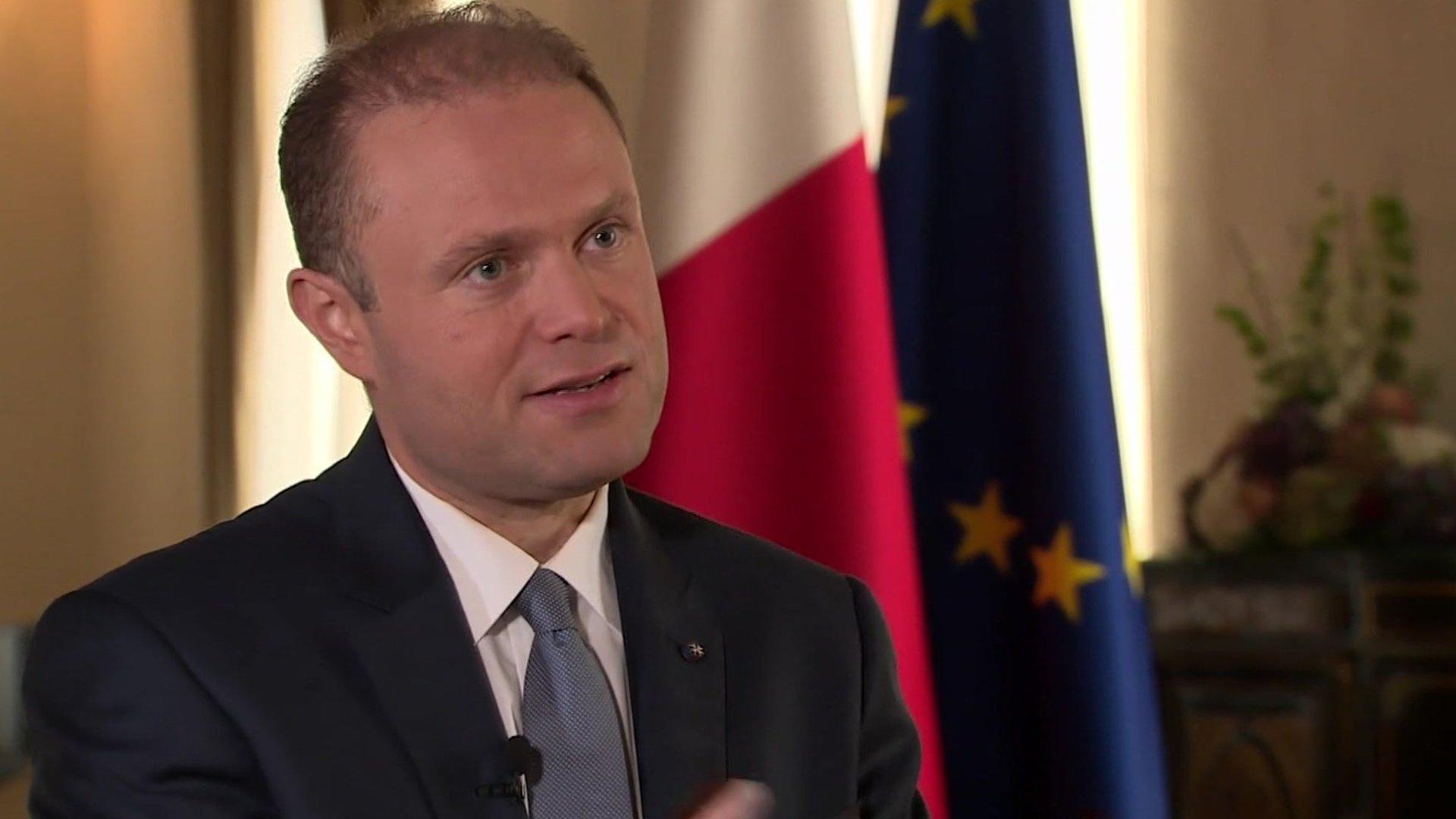Brexit EU trade deals 'should not cherry pick' different sectors
- Published
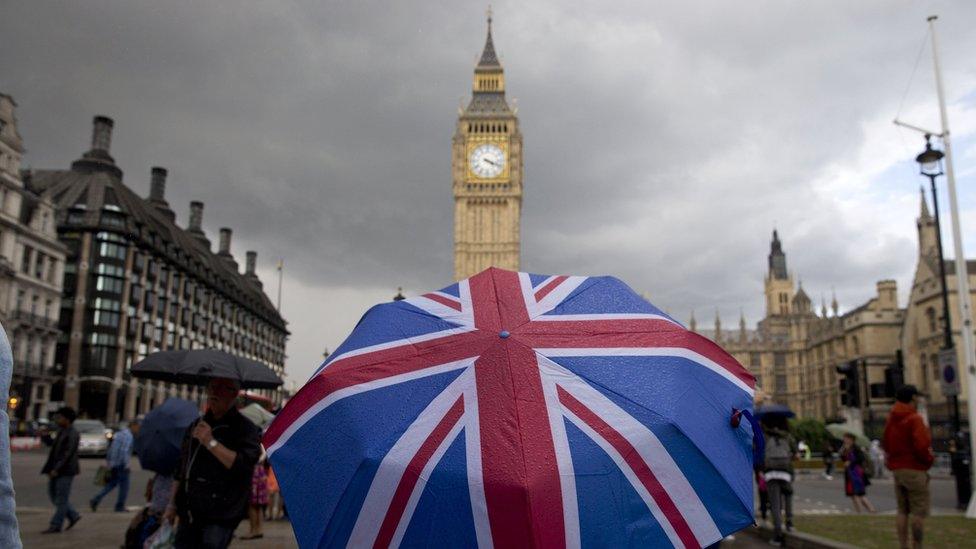
Campaigners are urging the government not to "cherry pick" different parts of the economy for special trade agreements with the EU after Brexit.
Three pro-EU MPs argue this approach risks creating "losers" because almost all sectors are linked to the EU.
Tory Anna Soubry, Labour's Chuka Umunna and Lib Dem Nick Clegg all want the UK to remain in the EU single market.
Pro-Brexit Tory Michael Gove says the single market is a "bureaucratic web" which the UK should leave.
The three pro-EU MPs are part of Open Britain, which replaced the official Remain campaign after the EU referendum.
At an event in London, they will present a report looking at different sectors of the UK economy and their links with the EU.
Written by the Centre for Economics and Business Research, it says every sector appeared to benefit from trade within the single market with 3.25 million UK jobs, external directly or indirectly linked to EU trade.
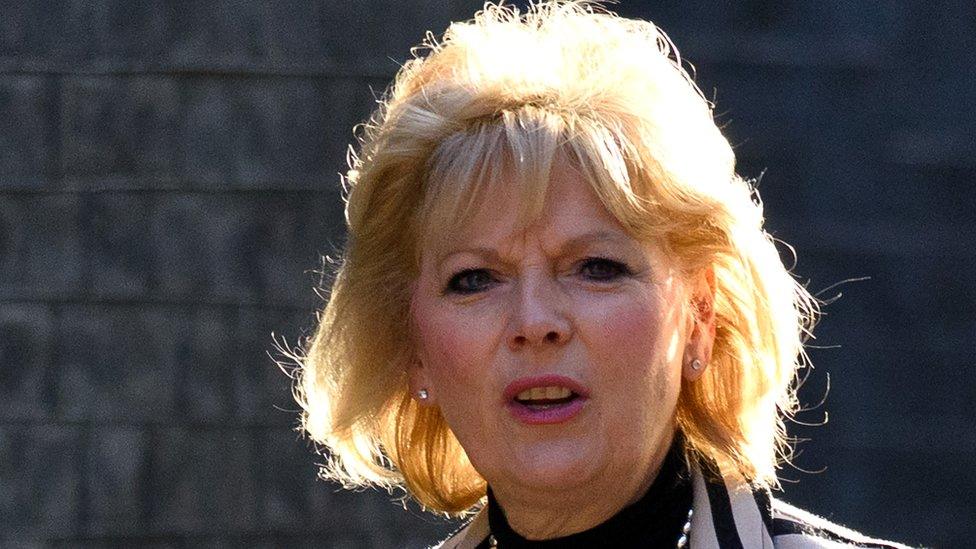
Former minister Anna Soubry was a prominent Remain campaigner
Manufacturing would "certainly suffer significantly" from restricted access to the single market, it says, while banking and insurance and professional services also have a "very strong link" to the EU and other sectors have "indirect" links.
"Although it might seem theoretically possible to cherry pick a number of sectors and negotiate trade agreements for the sectors, there is considerable linkage between the sectors," the report says.
"It has taken a quarter of a century to negotiate the single market as it exists today and could take nearly as long to renegotiate a new arrangement on a sectoral basis."
Any attempt to choose "winners" for free trade deals with the EU "cannot be achieved without the risk of creating 'losers' through reduced access and reduced future mutual benefits", it adds.
Ms Soubry will say: "There are no inevitable outcomes. There is no mandate for one particular Brexit option. The only question on the ballot paper was whether to leave, which we will, but how we execute our extraction must be debated."
The single market - which allows EU states to trade free of tariffs and other barriers - is central to the debate on what kind of deal the UK should seek when it leaves.
EU leaders have said access to, or membership of, the single market is dependent on the UK continuing to accept the principle of free movement, while Downing Street says people voted for greater control over the UK's borders and says it will not compromise on immigration controls.
Ministers have yet to set out in detail their negotiating aims, but say they want maximum possible access to the single market.
'Bargaining chips'
Prime Minister Theresa May has also said the UK will not seek to replicate other countries' trading arrangements with the EU, saying she will be pressing for a "bespoke" deal.
A spokesman for the Department for Exiting the EU said: "The government has been clear that we want to give British companies the maximum freedom to trade with and operate in the single market - and let European businesses do the same here.
"But we have also been clear that the UK should make its own decisions on controlling immigration and the authority of EU law should end.
"It's not in the UK's interest to give a running commentary on our thinking that could undermine our negotiating position."
On Sunday, ex-minister and Vote Leave campaign chief Mr Gove told the BBC's Andrew Marr Show: "I think when people voted to leave the European Union they voted to take back control of our money, our laws, trade deals and our borders.
"That means that the single market, that is basically a bureaucratic web, we need to be out of."
In other Brexit news, 81 MPs and peers have signed a letter to European Council President Donald Tusk calling for a deal to protect the rights of both Britons living in other EU countries and EU nationals in the UK.
The letter, co-ordinated by Conservative MP Michael Tomlinson, says people are not "bargaining chips" and calls for discussions to "move forward quickly".
- Published27 November 2016
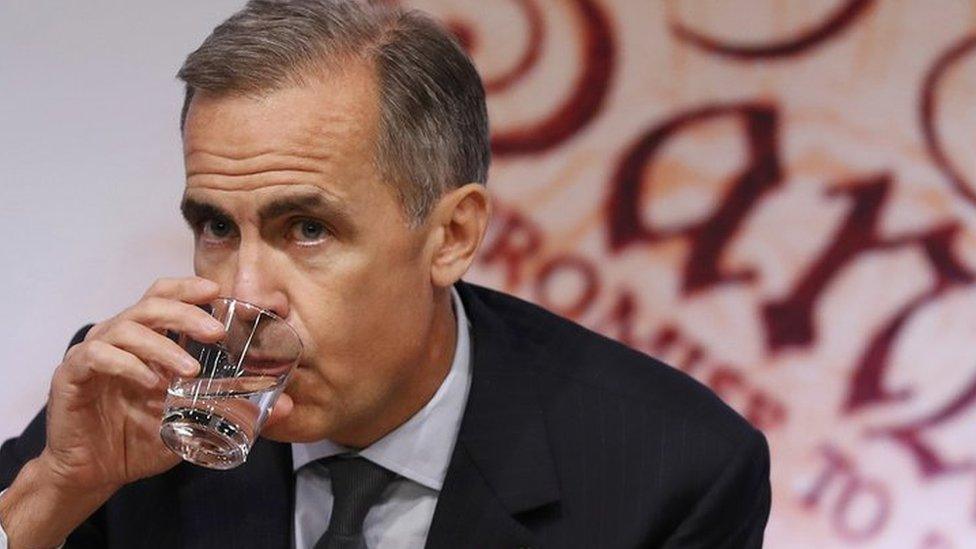
- Published12 June 2017
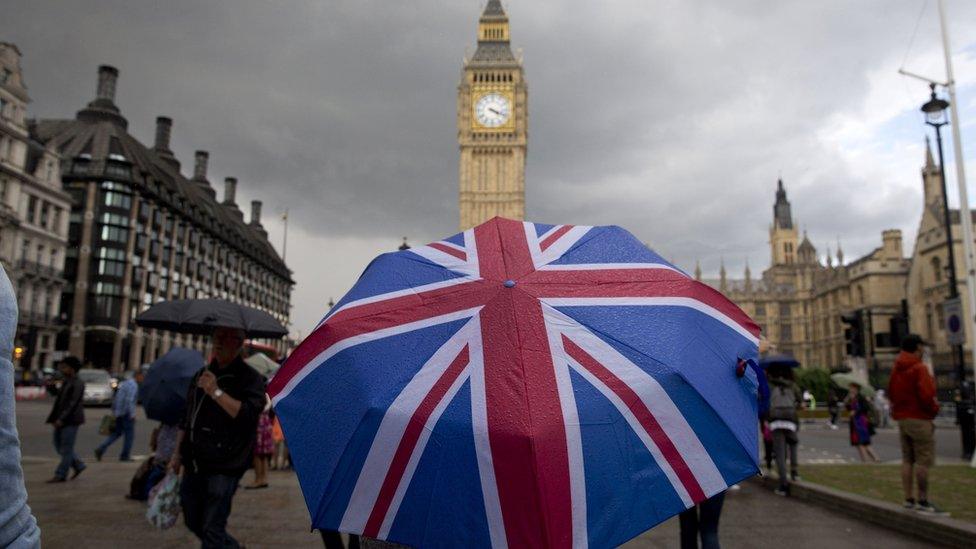
- Published28 March 2017
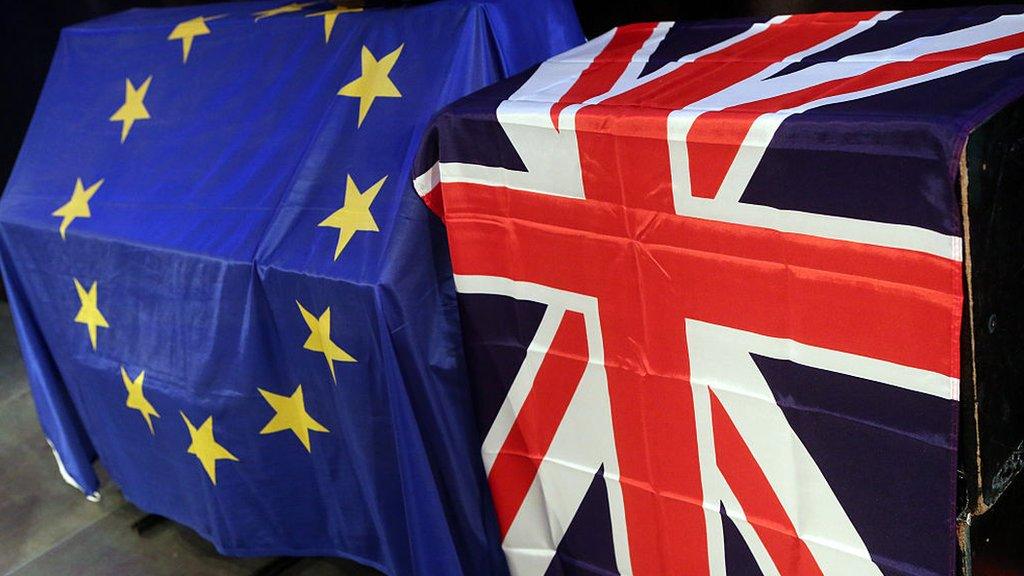
- Published25 November 2016
